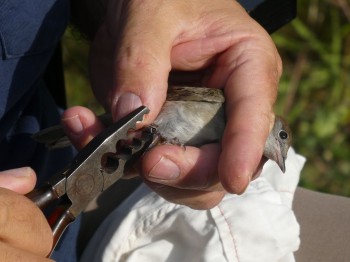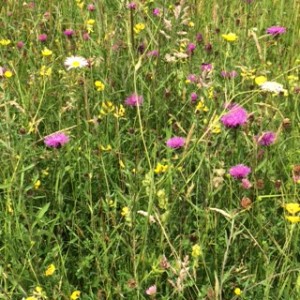Chedington and the Wyke Farm Bioblasts
The Background:
Wyke Farm, Chedington – enlightened land management in west Dorset
On the north-west boundary of Dorset between Halstock and Chedington, the aerial map shows a large swathe of ominously dark green woodland. These were originally Forestry Commission plantations collectively known as Chedington Woods. Not long ago these woods would have contained seried ranks of conifers with very little light getting in and unsurprisingly pretty lifeless as a result. A comparison with the 1880’s First Edition Six-inch Ordnance Survey map ( https://maps.nls.uk/view/101462563 ) reveals that these FC plantations had been imposed in the 20th century on ancient coppice woodlands almost certainly very rich in plant and animal life but growing on agriculturally unforgiving ground riddled with wet flushes and streams.
Rob and Alex Appleby bought the fields and pastures of Wyke Farm in 2000 together with the adjacent forestry land. Wyke Farm was then an intensive dairy farm producing milk for cheesemaking for Coombe Farm (Crewkerne). It became clear to the Applebys that they faced the choice that so many farmers have had to face in recent decades – they could either modernise and intensify the farm even further (with all the accompanying financial and environmental risks) or they could change their farming model completely – they chose the latter! (https://wykefarm.com/the-farm/ )
Since then, the Wyke Farm land holding has grown considerably, incorporating the adjacent Whitevine Farm with its wonderful SSSI hay meadows and 4 other farms. The latest acquisition is the area on the western slopes of Penn Hill which will be fully in the control of Wyke Farm in four years time.
They have also acquired the breathtaking views – wonderful panoramas stretching from the northeast to the west out across the plains and moors of Somerset.
Altogether the holding now totals over 1300 acres/hectares…..

The buildings have been restored beautifully and a fabulous lake has been dug in the field below them now full of life; the fields above the house have been restored to species-rich wildflower meadows using green hay from Whitevine Farm. The intensive dairy herd has been replaced by organic Red Devons (‘Ruby Reds’) The conifer plantations are gradually being harvested and replaced with deciduous species or allowed to redevelop by natural regeneration. Large areas damaged by windblow are bring replanted or allowed to regenerate naturally.

A comprehensive survey of this land was carried out between 2006 and 2010 under the supervision of ecologist Jo Francis, and a very large database of records was collected by experts in a range of different taxa. After Jo Francis sadly died, this phase of the survey work came to an end.
On the suggestion of the Applebys, EuCAN was invited to organise a residential weekend of surveying June 8th to 10th 2018, using local experts and others less experienced who could learn from them and help. Some of the participants stayed locally but most camped in tents or campervans in the field by the lake. A few attended on a non-residential basis.

We also included a visit to the haymeadow at Whitevine Farm for members of the Dorset branch of BC. Wyke Farm is a wonderful place to stay for the weekend, so rich in wildlife, and the Applebys were extremely generous hosts, treating us to a superb barbecue on the Saturday evening and a great spread of cakes on the Sunday afternoon.
Our Flickr photos from the 2018 weekend are here.
While the 2018 weekend was something of a trial run, we held a second weekend at the end of June 2019 when we had other experts in the team including a spiderman and several botanists in addition to our team of moth trappers, bird ringers, bat and newt experts etc. The moth species came to a staggering 174 including the very scarce Cloaked Pug, a spruce specialist..

One of the final and very exciting achievements of the 2019 weekend was when Richard and Rebecca Taylor the birdringers put their ladder up to the Kestrel nestbox and successfully ringed the 3 young!
Covid interrupted our plans for the next two seasons, though we were able to run some mothing sessions. The moth species total for the site was growing nicely especially with several of the team being micromoth experts.
In 2022, we held the weekend in July; it was memorable for coinciding with the first heat wave of 2022 and was extremely hot! One of the targets this weekend was to establish a butterfly transect and by the end of the weekend Steve Brown and his team had put the finishing touches to the new Wyke Farm Butterfly transect and tested it over the weekend and for the remainder of the season as a trial. It has now been running for two complete seasons overseen by Steve Brown.
The first 5 sections of the transect pass through the gloomy Chedington woods (admittedly with gloriously sunny clearings) followed by 5 sections across open fields and around the lake through the beautiful Home Wood. The final section crosses through the wildflower meadows.

Wood White – a rare species in Dorset which could thrive in Chedington Woods if introduced
The 2023 transect results included 20 species in the woodland sections (with good numbers of Silver-washed Fritillaries) and 22 species in the farmland sections – notably with Brown Argus and Small Coppers.
However, comparing the 2024 butterfly numbers with the previous years is not very encouraging! With Butterfly Conservation declaring 2024 the worst annual decline in its 50 year history, exacerbated by the wettest autumn/spring 6 months in UK history – which would have seriously affected species overwintering as caterpillars – total numbers in the Wyke Woodland were down by 25% and in the Wyke Farmland down by an amazing 55%. The hit was mainly with our more common butterflies, Meadow Browns down 1974 to 901, Red Admirals down from 156 to 22.
During the 2022 weekend, the moth species total broke the 250 barrier! It was certainly becoming clear that this estate is extremely rich in animal and plant life! The present moth list for all species recorded since 2006 now exceeds 700!
We had to cancel the July 2023 weekend the day before with all three days forecast to be severely windy and very wet. This was very disappointing – but the forecast turned out to be right!
Our survey weekend in 2024 was a huge success. We had a very good group of experts including specialists in beetles, several insect groups, mosses and liverworts, and bats in addition to the usual team of bird ringers, botanists, moth-ers and butterfly people. Once again the moth list exceeded 250 species.
There is scope for independent research on the estate to help us build up our database of species – please enquire.
The weekend of July 18th – 20th has been chosen for 2025. Click here for an outline programme for the 2025 weekend.
Records:
All the Chedington records and photos of the site and the species seen there are listed below.
This area has always been a relatively isolated and very rich and biodiverse part of Dorset, but Rob and Alex Appleby are making sure that under their stewardship Wyke and all the associated farms now incorporated into the estate will become more and more important and, we hope, a model for other schemes elsewhere.
Go to : https://wykefarm.com/
Chedington Woods and the surrounding farms are on the Dorset/Somerset border -see this map. Postcode: DT8 3HX.
For the spreadsheet of records from the 2018 weekend click here. And for the spreadsheet of records produced by the Dorset Environmental Records Centre after the 2019 weekend, click here.
For previous records from Chedington Woods, click on the headings below:
Chedington Woods Butterfly Report 2010
Chedington Woods Moth records 2007 to 2010
Survey of Chedington Woods Invertebrates 2009
Land Holdings Map Chedington Woods and surrounding estate
Winter Bird Survey Neil Croton 2007


Ringing a female Blackcap
And there are albums of photos on the EuCAN Flickr site for the 2019 weekend here and for the 2018 weekend here . In 2020 we did a moth trapping session there – photos here .
The 2022 weekend is remembered in photos in a Flickr album – click here
and 2024’s on this link
For the plant list from Whitevine Farm SSSI click here
Sarah Warren’s plant records from the wildflower meadows 2021
And the moth list from 2022 .
And some of the moth photos are here
Records from the 2022 weekend: Bird ringing results and recaptures (Richard and Rebecca Taylor), Invertebrate records from Max Cantrell, Moth records (Tim Norriss, Jack Oughton et al.), invertebrate records (Andy Foster)
and from the 2024 weekend: Bugs and Beetles collated by Adrian Mylward , Invertebrate records from Andy Foster , Lower Plants records collected by Andrew Branson ,
The Wyke Farm Butterfly Transect: Stephen Brown and his team put the finishing touches to the new Wyke Farm Butterfly transect route over the weekend and this was surveyed over the weekend and for the remainder of the season as a trial. The transect route map is here; these are the end of year 2022 results, 2023, 2024 .
Wyke Farm is now in the process of developing its own website – ( https://wykefarm.com/the-farm/ )
2025: Click here for an outline programme for the 2025 weekend and here for a booking form for the weekend.



